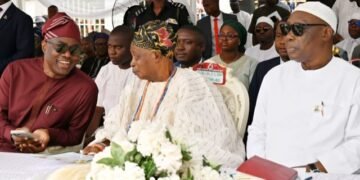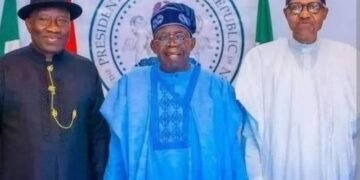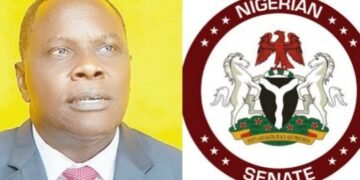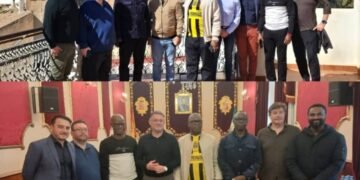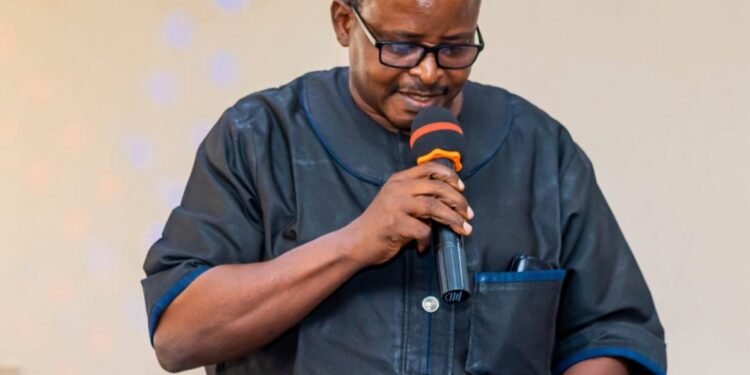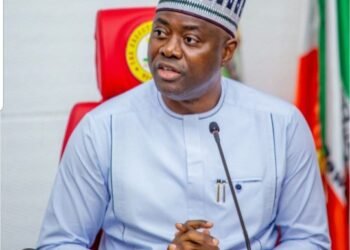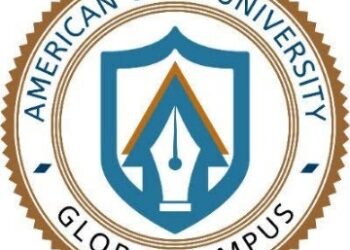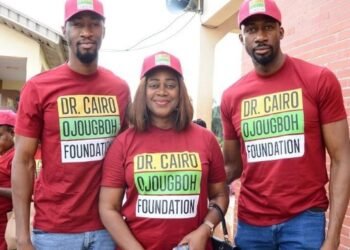Professor Olutayo Adesina of the University of Ibadan, Nigeria has emerged the winner of the sum of £879,117 in the 2023/2024 British Academy Awards.
Adesina, a former Head of Department (History), UI, was announced as one of the eight new Global Professorships by the British Academy for 2023-2024 in a release dated 11 April, 2024.
The Global Professorships scheme aims to foster collaboration between leading international researchers and UK-based institutions on new and cutting-edge research projects.
As contained in the release, the latest cohort of Global Professors will undertake research project on a range of diverse issues.
These included the development of novel food system models to benefit society and the exploration of West African communities’ history through museum collections.
The 2023-24 Global Professorships awardees were arranged alphabetically by surname of the grant recipient. The institution is that given at the time of application.
Professor Adesina (GP23\100046) was recognised for the £879,117 award with his project, “The Town And Gown Interface: Ibadan And The Decolonisation Of Social Knowledge In The 20th Century, University of Manchester.
The project by Professor Adesina identified that “In the 1950s, the University College Ibadan (UCI) became the epicentre of a historiographical revolution that directly shaped the evolution and growth of the Nigerian nation-state.”
Professor Adesina wrote that the historical UCI became “a movement that became an early instance of the decolonisation of knowledge.”
“How did the academic, social, intellectual, and political beacon at UCI address the concerns and realities of ordinary people?
“To what extent was the work of academic historians and social scientists at UCI shaped by indigenous, vernacular epistemologies?,” the eminent historian asked.
The project identified the city of Ibadan as having its own, rich and distinctive, cultural and intellectual identity.
“This project studies, for the first time, the interplay of nationalist historiography, academic social science, and vernacular knowledge as mutually constitutive social epistemologies.
“The project combines a close study of key works in history and related disciplines such as sociology, anthropology, ethnomusicology, language and literature with extensive interviews and fieldwork in the city of Ibadan, South-West Nigeria,” Professor Adesina added.
The seven other winners of the 2023/2024 British Academy Awards included: Professor Tetyana Antsupova (GP23\100072) of the British Institute of International and Comparative Law (BIICL).
Professor Antsupova’s project, “The Dynamics of the Judiciary in Ukraine in the Context of the Rule of Law and the EU Accession Aspirations”, earned him £895,422.09.
The proposed project will provide a first of its kind critical examination of Ukraine’s judicial system from a historical (from 1991–to date) and legal perspective;
Professor Paul Behrens (GP23\100134) of the University of Oxford earned £897,568.32 with his project, “Rapid Food System Transformations In A Rapidly Changing World”.
“Food system emissions alone are enough to push the planet past 1.5°C or potentially 2°C of warming this century (even with a decarbonised energy system).
“Food systems are also the largest contributor to deforestation, water use, biodiversity loss, antimicrobial resistance, and other crises.
“Simultaneously, food production is threatened by environmental climate impacts emerging earlier than previously anticipated,” he wrote;
Professor Sandrine Berges (GP23\100202) of the University of York earned £868,767.63 with his work, “Finding Diversity in Enlightenment’s Philosophy’s Attitude to Abolitionism”.
Berges wrote: “This new project aims to bring to light the way in which women, Black individuals and members of dissenting religious sects participated in the intellectual effort of late enlightenment abolitionism.
“These authors rarely feature in discussions of abolitionist movements of that period, even though some were prominently involved in the movement.
“The benefits of an intersectional approach to feminism and anti-racism are well documented now”.
The project by Professor Karine Chemla (GP23\100312) of University of Edinburgh, “Rethinking The History Of Mathematical Symbolism”, won £899,337.00.
“The historiography of mathematical symbolism generally considers this type of mathematical language to be an innovation introduced in Europe at the end of the 16th Century.
“My project aims to explore the hypothesis that what we have at the time is more precisely a new type of mathematical symbolism, and that this new type was drawing on earlier types of symbolism—in particular, on some properties of decimal place-value notations and on mathematical practices related to them.
“In other words, I suggest rethinking what we mean by “symbolism”. I further suggest examining in what respects decimal place-value notations should be considered as belonging to the history of mathematical symbolism,” Professor Chemla wrote about his project;
Professor Saloumeh Gholami (GP23\100049), of the University of Cambridge won £875,667.20 with his project, “Persisting Through Change: A Study Of Oral Literature And Cultural Interaction In The Zoroastrian Community”.
“This project examines the oral traditions of the Zoroastrians as they have survived in the now critically endangered Zoroastrian Dari (Behdini) language.
“Using new primary source material and two interactive strategies, convergence and divergence, it examines how oral literature is created, transmitted, and interpreted in the Zoroastrian community and how it has succumbed, or resisted, to change while interacting with the Islamic majority culture.
“Documenting and analysing these oral traditions in a multidisciplinary approach, the goal is to reveal the cultural dynamics between language, literature, and society of a distinct minority in the context of the majority culture,” Gholami wrote.
Professor Ayelet Landau (GP23\100178) of the University College London won £899,999.97 with his “Do Rhythms Coordinate Sensation And Action?”
“Rhythms are a ubiquitous phenomenon in cognition and the brain. Many of our motor behaviours unfold rhythmically, including our eyes and body movements. The ubiquity of rhythms extends to our sensory system, too.
“Although we have the impression that our perceptions are continuous, I have previously demonstrated that this is not the case…
“The goal of this proposal is to study the functional coordination of sensing and acting, and to assess whether the rhythms governing each might be two sides of the same coin, reflecting a shared coordinating mechanism of movement and sensing,” Landau wrote.
Professor Abubakar Sule Sani (GP23\100008) of the University of East Anglia won £892,037.31 with his “Looking Forward, Looking Back: Past and Present West African Communities Revealed through Museum Collections”.
He wrote: “My vision for this Global Professorship is an innovative programme of research that will invigorate academic collaborations between the UK and Nigeria/West Africa and become a model for future engagement based on trust, co-production of knowledge and intellectual integrity.
“I aim to achieve this by combining archaeology, museum practice and stakeholder engagement to study large and under-researched collections from key Nigerian sites, drawing on archaeological, ethnographic and archival data held in British and Nigerian museums.
“This research will bring new understandings of African history, and of UK/Nigerian research histories, through academic outputs, online resources, exhibitions and outreach in the UK and Nigeria.”
The British Academy stated that the awards listed are those for the 2023 Global Professorships Awards, adding that previous award announcements can be found on the Global Professorships past awards page.

